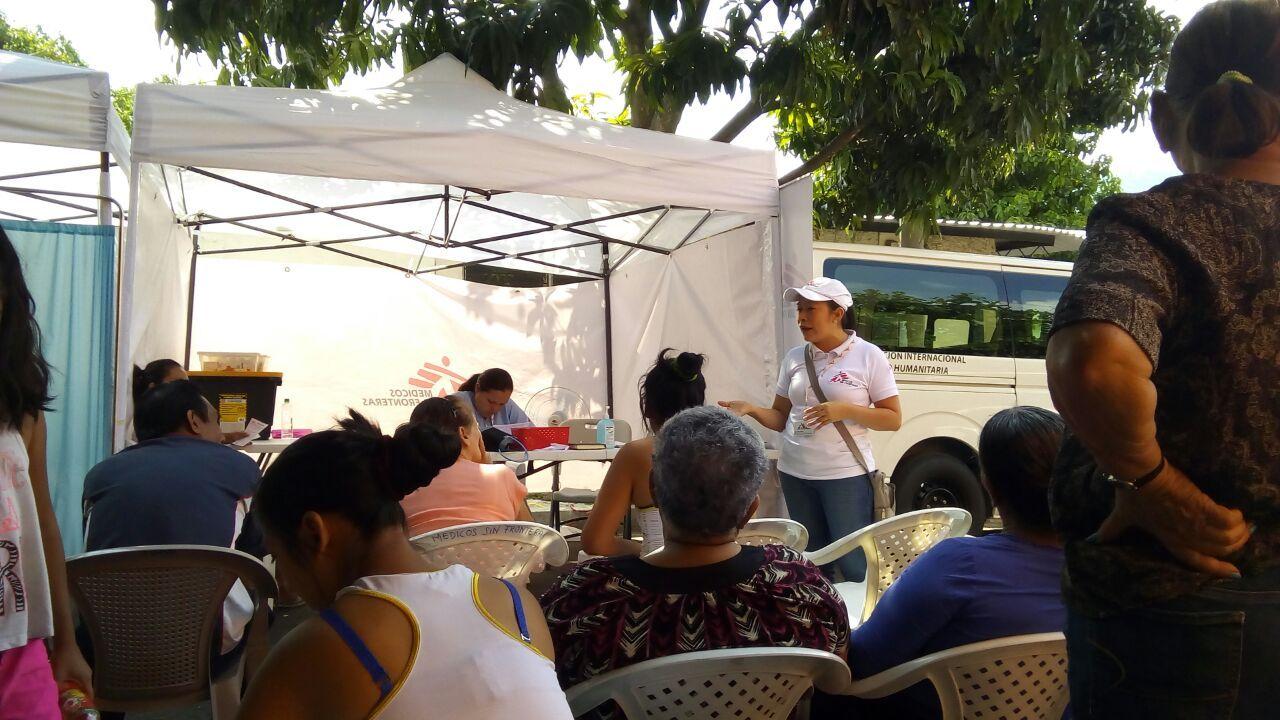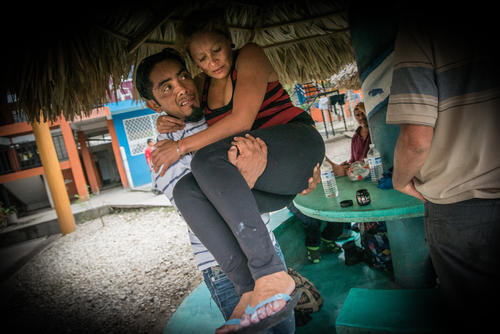Through primary healthcare services, mental health services and community work, Médecins Sans Frontières (MSF) aims to improve access to health services for vulnerable people affected by the ongoing violence.
MSF has launched health initiatives in San Salvador and Soyapango, focusing on socially vulnerable people whose access to health services has been affected by insecurity. MSF is working closely with public health institutions to provide care to the people who need it most, under agreement with the Ministry of Health.
A number of services are being rolled out. Mobile primary care brigades (general medicine, sexual and reproductive health and clinical psychology) have been set up for people with difficulty accessing health facilities, while social workers perform follow-ups and refer patients to other institutions. In addition, a comprehensive mental health initiative has been launched, with community work and health promotion activities designed to reinforce healthy practices and the social fabric of communities. MSF is also providing clinical psychology support to family health clinics in the areas in which it works.
These initiatives are the result of a thorough analysis of local realities and of the work already carried out within the communities and with local health authorities.
The MSF team in El Salvador is comprised of 54 people of different profiles, including general practitioners, nurses, social and clinical psychologists, social workers, logisticians, managers and support staff. They are currently working in communities and settlements in District 6 of San Salvador (Tinetti, Concepción, El Paraíso, San Juan Bosco, and Barrio Lourdes), and the northern area of Soyapango (Bosques del Río, Las Margaritas and Río Las Cañas). MSF is already extending its services to include Reparto La Campanera (Soyapango) and the San Juan Bosco community (San Salvador), and is looking into the possibility of expanding into other areas and including services for migrants, refugees and people who have been deported.
The people to whom we provide care are afraid of being attacked when they travel to health facilitiesStéphane Foulon, MSF general coordinator in El Salvador
MSF is working in El Salvador due to the risks posed by the current insecurity in the country, mainly as a result of conflict between gangs and security forces, and its consequences on the general population’s health and access to healthcare. “The people to whom we provide care are afraid of being attacked when they travel to health facilities. Not to mention the mental health impact of the widespread fear,” says Stéphane Foulon, MSF general coordinator in El Salvador.
“The conditions of violence, marginalisation, social exclusion and stigma that these communities suffer at the hands of parts of society, certain institutions and armed groups are making the situation worse.” MSF’s work on the ground “is being carried out in full agreement and coordination with the local communities and health institutions,” Foulon adds.
MSF is no stranger to Salvadorans. During the armed conflict of the 1980s, it offered primary healthcare services, which included prosthetics for people maimed by the violence on both sides. MSF also participated in the emergency responses to Hurricane Mitch in 1998, the 1986 and 2001 El Salvador earthquakes and Hurricane Ida in 2009.






